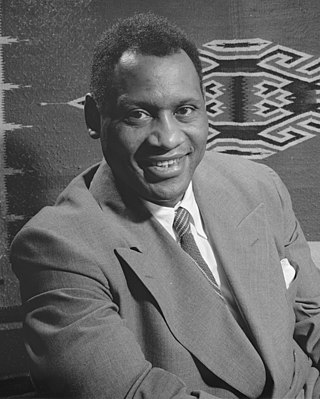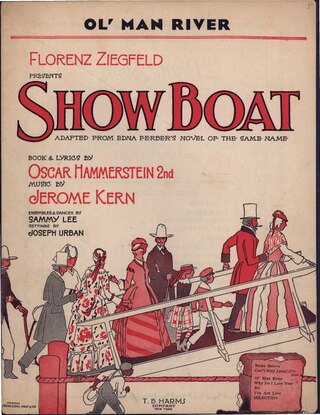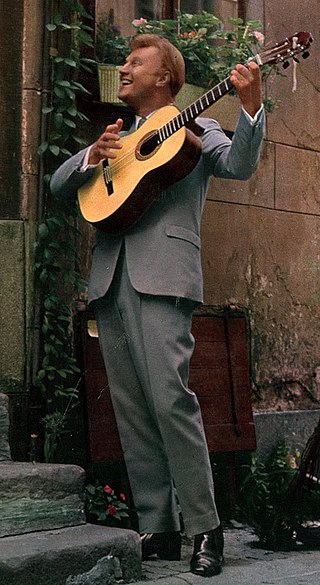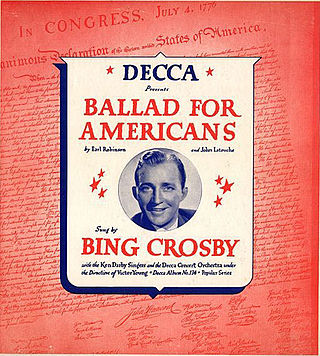
Paul Leroy Robeson was an American bass-baritone concert artist, actor, professional football player, and activist who became famous both for his cultural accomplishments and for his political stances.
The Peekskill riots took place at Cortlandt Manor, New York in 1949. The catalyst for the rioting was an announced concert by black singer Paul Robeson, who was well known for his strong pro-trade union stance, civil rights activism, communist affiliations, and anti-colonialism. The concert, organized as a benefit for the Civil Rights Congress, was scheduled to take place on August 27 in Lakeland Acres, just north of Peekskill.

Kathleen Deanna Battle is an American operatic soprano known for her distinctive vocal range and tone. Born in Portsmouth, Ohio, Battle initially became known for her work within the concert repertoire through performances with major orchestras during the early and mid-1970s. She made her opera debut in 1975. Battle expanded her repertoire into lyric soprano and coloratura soprano roles during the 1980s and early 1990s, until her eventual dismissal from the Metropolitan Opera in 1994. She later has focused on recording and the concert stage. After a 22-year absence from the Met, Battle performed a concert of spirituals at the Metropolitan Opera House in November 2016, and again in May 2024.

William Caesar Warfield was an American concert bass-baritone, known for his appearances in stage productions, Hollywood films, and television programs. A prominent African American artist during the Civil Rights era, he worked with many notable artists, represented the United States during foreign tours, taught at academic institutions, and earned numerous accolades, including a Grammy Award in 1984.

"Ol' Man River" is a show tune from the 1927 musical Show Boat with music by Jerome Kern and lyrics by Oscar Hammerstein II, who wrote the song in 1925. The song contrasts the struggles and hardships of African Americans with the endless, uncaring flow of the Mississippi River. It is sung from the point of view of a black stevedore on a showboat, and is the most famous song from the show. The song is meant to be performed in a slow tempo; it is sung complete once in the musical's lengthy first scene by the stevedore "Joe" who travels with the boat, and, in the stage version, is heard four more times in brief reprises. Joe serves as a sort of musical one-man Greek chorus, and the song, when reprised, comments on the action, as if saying, "This has happened, but the river keeps rolling on anyway."

"Ballad for Americans" (1939), originally titled "The Ballad for Uncle Sam", is an American patriotic cantata with lyrics by John La Touche and music by Earl Robinson. It was written for the Federal Theatre Project production, Sing for Your Supper that opened on April 24, 1939. Congress abolished the project on June 30, 1939. The "Ballad of Uncle Sam" had been performed 60 times.

"Sometimes I Feel Like a Motherless Child", also "Motherless Child", is a traditional spiritual. It dates back to the era of slavery in the United States.

Belafonte at Carnegie Hall is a live double album by Harry Belafonte issued by RCA Victor. It is the first of two Belafonte Carnegie Hall albums, and was recorded on April 19 and April 20, 1959. The concerts were benefits for The New Lincoln School and Wiltwyck School, respectively. The album stayed on the charts for over three years.

"Deep River" is an anonymous African-American spiritual, popularized by Henry Burleigh in his 1916 collection Jubilee Songs of the USA.
"Rockin' Chair is a 1929 popular song with lyrics and music composed by Hoagy Carmichael. Musically it is unconventional, as after the B section when most popular songs return to A, this song has an A-B-C-A1 structure. Carmichael recorded the song in 1929, 1930, and 1956. Mildred Bailey made it famous by using it as her theme song. Like other 1920s standards, "Rockin' Chair" relied on the stereotypes of minstrelsy, citing "Aunt Harriet" from the anti-Uncle Tom song "Aunt Harriet Becha Stowe" (1853).
Odetta's discography is large and diverse, covering over 50 years and many record labels.

"Nobody Knows the Trouble I've Seen" is an African-American spiritual song that originated during the period of slavery but was not published until 1867. The song is well known and many cover versions of it have been recorded by artists such as Marian Anderson, Lena Horne, Louis Armstrong, Harry James, Paul Robeson, and Sam Cooke among others.

Kenneth Spencer, was an American operatic singer and actor. Spencer starred in a few Broadway musicals and musical films in the United States during the 1940s. Frustrated with the racial prejudice he experienced in the United States as a black man, Spencer moved to West Germany in 1950, where he had a successful singing career. He also appeared in a number of German films. His career was cut short when he died in the crash of Eastern Air Lines Flight 304.

Aubrey W. Pankey was an American-born baritone and noted Lieder singer in 1930s Germany. In 1956 he permanently emigrated to East Germany under the growing shadow of McCarthyism together with his companion Fania Fénelon. He was the first American to sing in the People's Republic of China in 1956.
Lawrence Benjamin Brown was an American singer, composer and pianist born in Jacksonville, Florida. He is best known for his arrangements of Negro spirituals, many of which he performed as accompanist for Paul Robeson, performing on piano and singing harmony.

William Clauson was a Swedish-American singer of folk songs from various nations, including some of the songs of Carl Michael Bellman in both English and Swedish.

Ballad for Americans is a studio album of phonograph records by Bing Crosby released in 1940 featuring the popular "Ballad for Americans" sung by Crosby in an American-type patriotic style. In 1946, the two records in this album were put into a new album called What We So Proudly Hail. This was Crosby's first studio album that was not a reissue of earlier singles.

Robert Watson Schmertz was a Pittsburgh-based architect and folk musician whose music has been covered by Pete Seeger, Burl Ives, Tennessee Ernie Ford, Bill and Gloria Gaither, The Statler Brothers, The Cathedrals, Dailey & Vincent, the River City Brass Band, and Ernie Haase & Signature Sound. Born in Squirrel Hill, Pittsburgh, Pennsylvania, Schmertz attended the Carnegie Institute of Technology, where he wrote the Carnegie Tartans' fight song, "Fight for the Glory of Carnegie," and played the banjo in a jazz orchestra; after he graduated with an architecture degree in 1921, Schmertz designed buildings. He taught at Carnegie for more than thirty-five years before his retirement.

Matthew Washington Kennedy was an American classical pianist, professor, choral director, composer, and arranger of Negro Spirituals. He is widely known as the director of the historic Fisk Jubilee Singers of Nashville, Tennessee from 1957 to 1986.

Songs of Free Men is a studio album by Paul Robeson, recorded in early 1942 and released on Columbia Masterworks in 1943.















